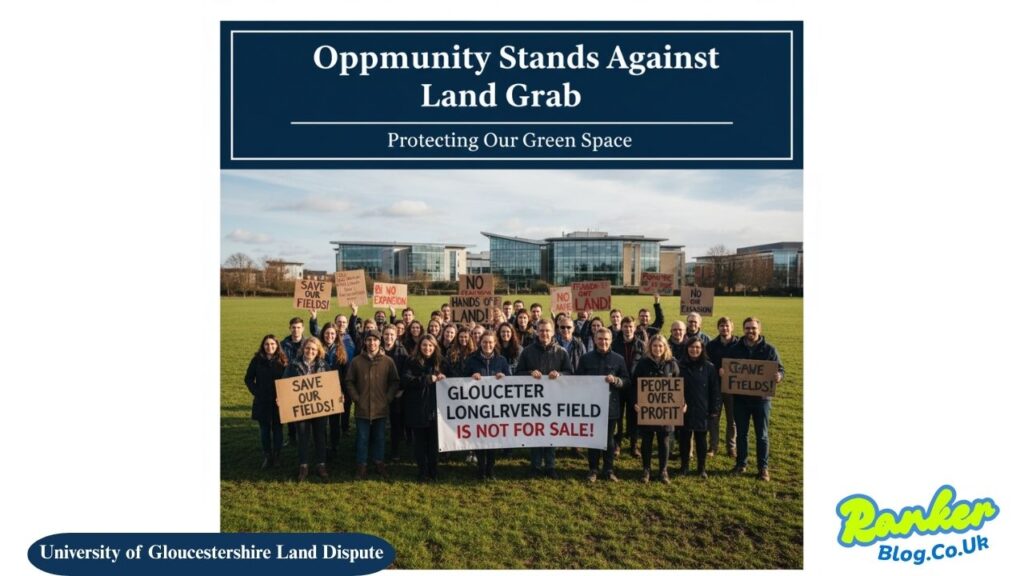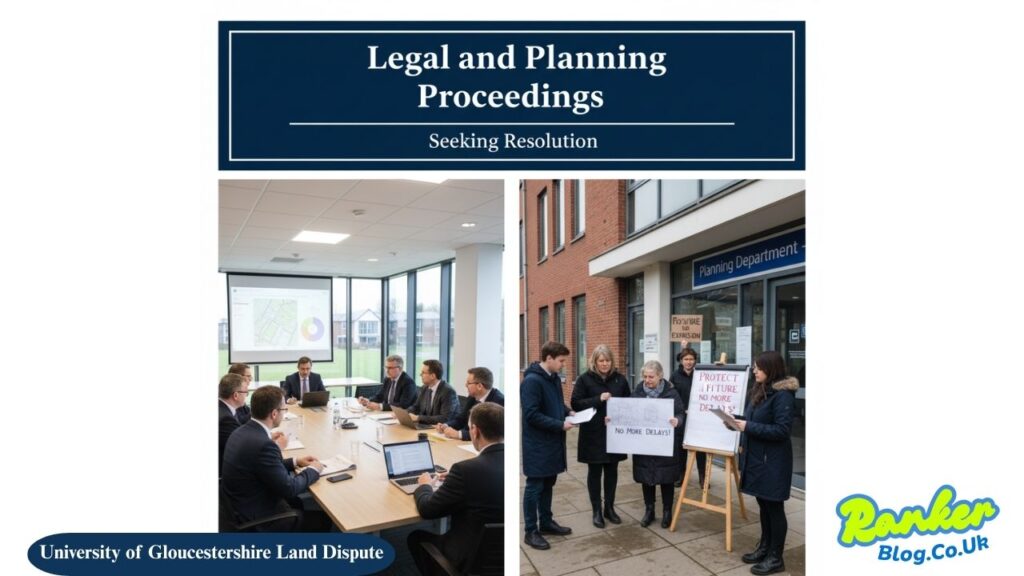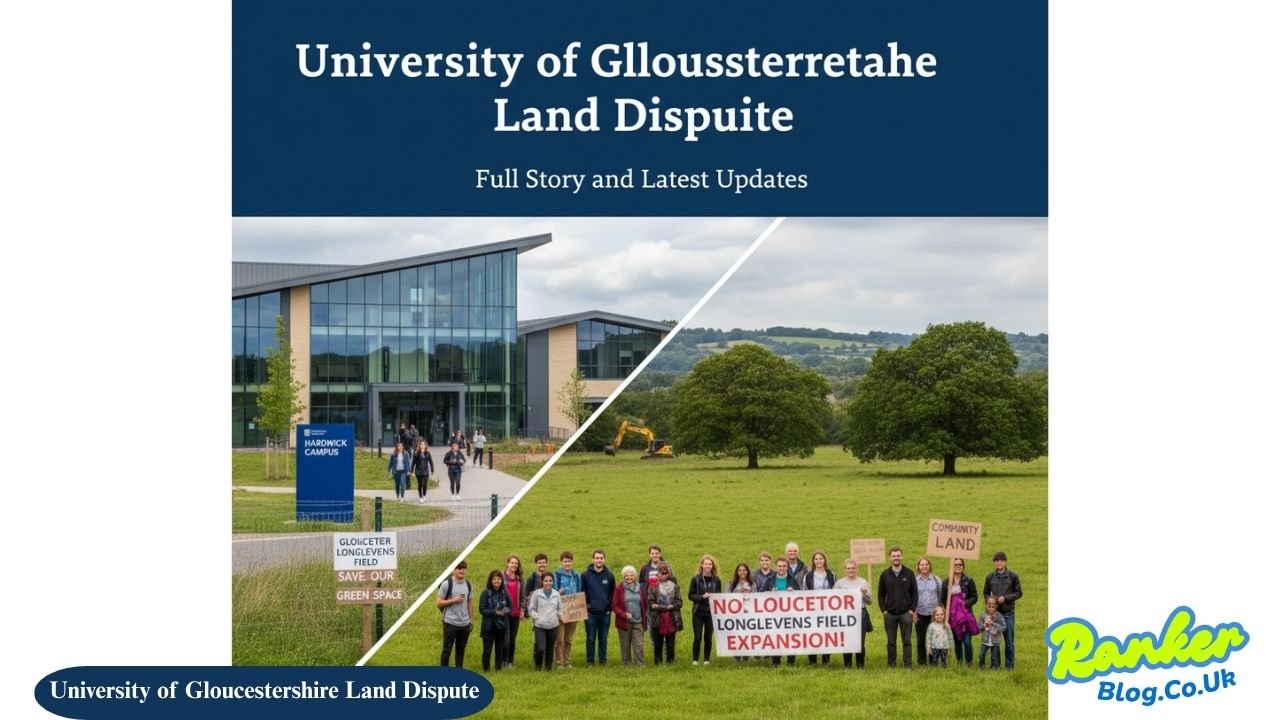Introduction
The University of Gloucestershire land dispute has become one of the most talked-about topics in the region. As the university continues to grow and adapt to modern educational needs, its plans for land development have faced strong scrutiny from the local community. This issue has drawn attention from students, staff, residents, and environmental groups alike, all eager to understand the balance between progress and preservation.
Background of the Dispute
The roots of the dispute trace back to land near Hardwick Campus and surrounding areas, including the Gloucester Longlevens field blocked zone that has long been valued for its open green spaces. Historically, this land served as both a community resource and an area of environmental importance. However, as the University of Gloucestershire Hardwick Campus sought to expand its academic facilities and student housing, tensions began to rise.
The ownership and use of these parcels of land have been debated for years, involving local councils, developers, and nearby residents who have voiced concerns about the university’s development intentions.
University’s Perspective

From the university’s point of view, the land development plans are a necessary step toward modernizing education infrastructure. The institution has expressed that growth around Hardwick Campus Cheltenham would help enhance student experience and support sustainability through new, energy-efficient facilities.
University officials have emphasized their commitment to respecting local history while ensuring that students benefit from improved academic spaces. According to statements from representatives, the goal is to strike a balance between preserving community values and providing state-of-the-art resources for future learners.
Opposition and Community Concerns

Many residents and activists, however, have voiced their opposition. They argue that blocking the Gloucester Longlevens field would reduce public access to green spaces and affect local biodiversity. Community groups have organized campaigns and petitions, urging the university to reconsider or scale back its plans.
Concerns also extend to the environmental footprint of large-scale construction projects near the Hardwick Campus, as well as the potential loss of local heritage. For many, the issue represents a broader struggle between academic development and community preservation.
Legal and Planning Proceedings

The University of Gloucestershire land dispute has gone through several rounds of planning discussions and legal reviews. Local councils have examined proposals and objections, while environmental groups have called for stricter oversight.
As of the latest updates, certain planning applications have faced delays due to public pressure and formal objections. Both sides remain engaged in dialogue, hoping for a resolution that satisfies legal, environmental, and educational standards.
Public Reactions and Media Coverage
The dispute has received significant attention from local and regional media, often highlighting both the university’s ambitions and the community’s concerns. On social platforms, debates have been lively, with hashtags linked to Hardwick Campus Cheltenham trending among students and residents.
Public sentiment remains divided—some support the university’s vision for modernization, while others feel that too much local character is being lost in the process.
Current Status of the Dispute
As of 2025, discussions around the University of Gloucestershire Hardwick Campus expansion are still ongoing. While the university has made adjustments to its original proposals, community groups continue to monitor developments closely. No final agreement has been reached, and negotiations between stakeholders remain active.
The mention of 03330 who called me has occasionally surfaced in online community forums as locals discuss official calls and updates related to planning notifications—adding to the buzz around this evolving story.
Broader Implications
The case serves as a valuable lesson for universities across the UK. It highlights how expansion and sustainability efforts can clash with local sentiments and environmental preservation. The University of Gloucestershire land dispute reflects broader national discussions on how academic institutions can responsibly manage their estates while maintaining community trust.
Conclusion
The ongoing University of Gloucestershire land dispute underscores a vital question: how can universities grow responsibly while respecting the spaces they share with their communities? As both sides continue to seek common ground, the outcome will likely set an example for future campus developments across the country.
Also Read: Glasgow Water Main Break Shettleston Road

